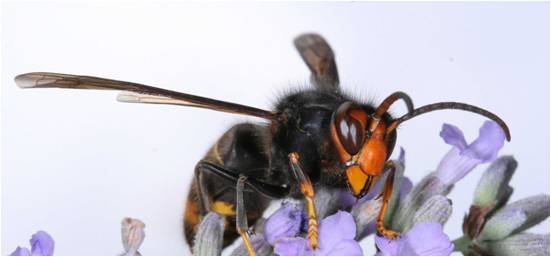Asian Hornet
Introduced to France in 2004 where it has spread rapidly. A number of sightings have been recorded in the UK since 2016, including Devon with the Tamar Valley National Landscape located in an area vulnerable to increased Asian hornet activity.
There is a rapid increase in numbers in other counties along the south coast last year and a number of the insects being inadvertently brought to the UK from mainland France.
A highly aggressive predator of native insects. Poses a significant threat to honey bees and other pollinators. The Asian hornet should not be confused with the smaller, native European Hornet.
More Information and downloadable ID sheet
The British Beekeepers’ Association (BBKA) leads an annual Asian Hornet Week at the beginning of September, to raise awareness raising held when the insects are at their peak in terms of activity and are most likely to be seen.
The ‘Yellow-legged’ Asian hornet could decimate our pollinators so it is important to have everyone actively looking for it.
Do not disturb an active nest.
Members of the public who suspect they have found an Asian Hornet should report it with a photo using;
- the iPhone and Android recording app: Asian Hornet Watch
- online at: www.nonnativespecies.org/alerts/asianhornet
- by email: alertnonnative@ceh.ac.uk
Get involved!
The UK Government is currently in the eradication phase of management of the Asian hornet incursion, meaning that any suspected sightings should be reported to the National Bee Unit, who will then track, trace and destroy any nearby nests.
The Great British Invasive Non-Native Species Secretariat provide updates on sightings.
For more information on identification and reporting , please visit the:
Asian Hornet alert page